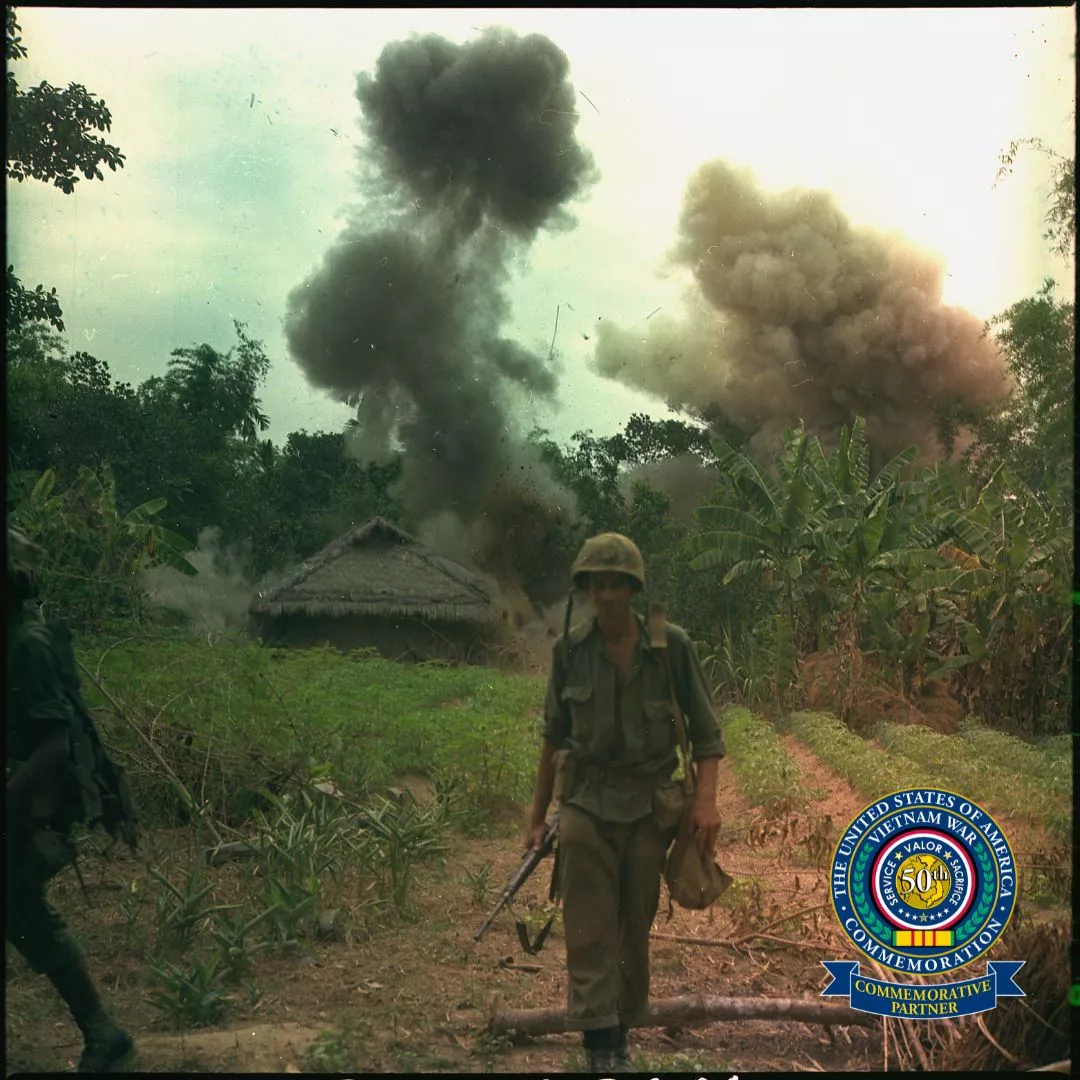
The Vietnam War was a long, costly, and divisive conflict between the communist government of North Vietnam and the more democratic government of South Vietnam and its ally, the United States. This conflict was only intensified by the ongoing Cold War between the world’s two superpowers: the United States and the Soviet Union. The result was over 3 million people killed, among them 58,000 Americans.
Though the war would not officially begin until 1954, tensions had been brewing in the area for years prior. Following the events of World War II, Vietnam was left with two opposing ideologies vying for power. Emperor Bao Dai, a French-educated ruler, and Ho Chi Minh, a political leader inspired by Soviet and Chinese communism, both wanted to lead the country. Emperor Bao Dai wished for a more westernized Vietnam, and was backed by the French, who wished to gain control over their former colonial territory of Indochina. Ho Chi Minh, however, wanted a Vietnam free of Western influence.
The result was several internal conflicts between the two groups, which resulted in the French being completely ousted from the region, and anti-communist politician Ngo Dinh Diem winning the election as Vietnam’s first president. During his tenure, he received U.S. military and economic aid, which helped the country’s people. When he later established an autocratic government, assuming all power and authority, U.S. support began to waver. Communist guerilla group, the Viet Cong, took advantage of this lack in support and staged a coup d’état in 1963.
Two years later saw President Lyndon B. Johnson sending U.S. forces to Vietnam. Initially, President Johnson was lauded by the majority of Americans for his efforts to combat communism in Vietnam and abroad. Over 80,000 troops were sent June of that year, with another 175,000 joining them later. As the number of service members killed increased, however, American support quickly faded, and the hopes of a quick and decisive victory were dashed. Anti-war protests grew in number, finally coming to a head following the events in Mai Lai.
Opposition to the war divided Americans, even after Johnson’s successor, President Richard Nixon, signed the Paris Peace Accords and ordered the withdrawal of U.S. forces in 1973. The effects of this conflict, both psychological and physical, continued to take a toll on the public as veterans returned home suffering from combat injuries, exposure to Agent Orange, and post-traumatic stress disorder. Wishing to put this controversial time behind the country, the government failed to acknowledge the sacrifices these former service members had made.
In 1982, those veterans finally received a privately funded memorial, recognizing their efforts during the conflict. This memorial, commonly known as the Vietnam Wall, stands as a tribute to the war’s veterans as a tangible symbol of recognition by the American people. Vietnam veterans represented nearly 10% of their generation, but as time goes on, fewer remain to commemorate the sacrifices made during this conflict.
Despite the social and political divisions created by the war, it has become a poignant reminder of the importance of respecting our veteran community and honoring the service and sacrifices they’ve made. At Mt. Soledad National Veterans Memorial, we are unwavering in our belief that all active and retired members of our military who have or continue to serve honorably deserve that recognition and to have their stories told. Many of the plaques at Mt. Soledad feature the faces and names of those who took part in the conflict for this reason. And, since their return from the war, the Memorial’s efforts have been bolstered by Vietnam veterans who wished for a place to honor the memory of their service and that of their fallen comrades. As the number of living Vietnam War veterans continues to dwindle, our duty remains to honor them, today and beyond tomorrow, and preserve their legacy. This year, Mt. Soledad has partnered with the United States of America Vietnam War Commemoration, an initiative authorized by Congress, to remember the Vietnam War and its veterans.